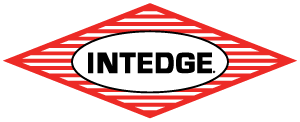Understanding Tariffs and How to Prepare for Them
Even though Intedge is a USA Made and Sourced manufacturer we still know that tariffs impact other products in your business. Here are a few tips on how to prepare for them.
Tariffs are an essential aspect of international trade that can significantly impact businesses and consumers. Whether you're an importer, exporter, or business owner, understanding tariffs and preparing for their effects is crucial for maintaining profitability and competitiveness.
What Are Tariffs?
Tariffs are taxes imposed by a government on imported or exported goods. They serve several purposes, including protecting domestic industries, generating revenue, and sometimes as a tool in trade negotiations. There are different types of tariffs, such as:
Ad Valorem Tariffs: A percentage of the value of the imported good.
Specific Tariffs: A fixed fee per unit of the imported good.
Compound Tariffs: A combination of ad valorem and specific tariffs.
Effects of Tariffs
Tariffs can have both positive and negative effects. On the one hand, they can protect local industries by making imported goods more expensive, encouraging consumers to buy domestically produced products. On the other hand, they can lead to higher prices for consumers and retaliatory tariffs from other countries, which can impact exports.
How to Prepare for Tariffs
If your business relies on international trade, it’s important to take proactive steps to mitigate the impact of tariffs. Here are some strategies to help you prepare:
Stay Informed: Tariff policies can change frequently due to trade agreements, political shifts, and economic conditions. Keep up with news from government agencies like the U.S. International Trade Commission or the World Trade Organization.
Diversify Your Supply Chain: Relying on a single country for imports can make your business vulnerable to tariff hikes. Consider sourcing from multiple countries to reduce dependency on any one region.
Negotiate with Suppliers: If tariffs increase costs, try negotiating better terms with your suppliers. Some suppliers may be willing to absorb part of the tariff cost to maintain a long-term business relationship.
Consider Tariff Engineering: Tariff engineering involves modifying products slightly so that they fall into a lower tariff category. This must be done legally and in compliance with customs regulations.
Leverage Free Trade Agreements (FTAs): Many countries have FTAs that allow for reduced or zero tariffs on certain goods. Research whether your products qualify for tariff exemptions under any existing agreements.
Reevaluate Pricing Strategies: If tariffs increase your costs, you may need to adjust pricing or find cost-cutting measures elsewhere to maintain profitability without losing customers.
Explore Domestic Production: If tariffs make imports too expensive, consider shifting some production domestically to avoid extra costs and maintain a steady supply.
Use Tariff Exclusions or Refund Programs: Some governments offer tariff exclusions or refund programs for certain goods. Check with customs authorities to see if your business qualifies for such relief measures.
Tariffs are a complex but unavoidable aspect of global trade. While they can pose challenges, businesses that take the time to understand and prepare for them can turn potential obstacles into opportunities. By staying informed, diversifying suppliers, and leveraging trade agreements, businesses can navigate the tariff landscape strategically and minimize negative impacts.
Are you facing challenges due to tariffs? Share your thoughts and experiences in the comments below!
